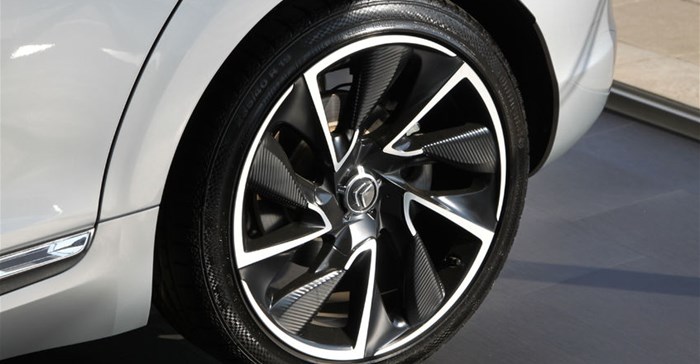#AfricaMonth: The fast-growing, untapped African car market
 1. What would you say is the current state, as well as the potential, of the vehicle / automotive market in Africa?
1. What would you say is the current state, as well as the potential, of the vehicle / automotive market in Africa?African new vehicle markets are currently in a state of stagnation and decline with sales showing weakened performance year-on-year. With the softening of commodity markets and the associated slowing of economic growth, buyers have come under pressure. This is reflected in Nigerian new vehicle sales dropping from approximately 50,000 units in 2015 to an approximated 6,000 in 2016. In response, production at Nigeria's new assembly plants has dwindled. NAAMSA has been very vocal with regards to the lack-luster performance of the new vehicle sector in SA.

Expectations are that new vehicle markets will start to see growth in 2018/2019 when commodities and the economic climate recover. Growth in the new vehicle markets of Africa are expected to grow substantially in the coming decades; however, one must be critical of the bold statements proposing Africa as the last frontier with forecasts suggesting enormous growth.
Many of these forecasts are based on assumptions of growth in the middle class yet, when one critiques these assumptions, it is unrealistic that a middle class earning a few dollars daily can afford cars that, in many cases, are far more expensive than found in SA. This is not to say that there are no growing pockets of middle-class buyers capable of buying cars.
Most of the growth in the small African markets is due to sales within the business sector. On a more sustainable note, until such a time comes that these economies diversify and create wealth from industries other than energy, we will continue to see volatility plague new car markets.
2. How does the African car market compare with other markets?
The African car market is small by global standards. To maintain consistency with the table below [vehicle stats i.e passenger and commercial vehicles, not car statistics], I have provided 2015 figures. South Africa, which is by far the largest new vehicle market in Africa, sold approximately 617,000 vehicles in 2015; Kenya managed 19,451; Nigeria approx. 6,000; Morocco 130,316; Egypt 278,048; Algeria 255,000. Most other markets barely breach 10,000 units annually. In total, we are looking at rough estimates of 1.5 million.
To provide context, see the table below:
| City or Town | Jan – Dec 2015 | Jan – Dec 2014 |
|---|---|---|
| Europe (EU+EFTA) | 14,201,900 | 13,006,500 |
| Russia | 1,601,200 | 2,491,400 |
| USA | 17,386,300 | 16,435,300 |
| Japan | 4,215,900 | 4,699,600 |
| Brazil | 2,480,500 | 3,333,400 |
| India | 2,772,700 | 2,570,500 |
| China | 20,047,200 | 18,368,900 |
3. Tell us more about the new government policies for the African automotive industry.
Understanding the potential growth of new vehicle sales in Africa's most populous countries, these respective governments have attempted to guarantee that the countries benefit economically and socially from the profits.
To this end, they have and continue to, develop policies that require manufacturers selling cars in these countries to invest in local assembly facilities to avoid incurring high import duties such as the 70% imposed on imports to Nigeria. This creates jobs and contributes to the industrialisation of their economies. Facilitating this process are a number of financial and non-financial incentives to persuade manufacturers to set up facilities.
4. Which African countries are currently participating in the new policies and why is it important for them to do so?
SA has focused on its automotive sector for a number of decades and continues to refine its policies - the APDP will be continued after 2020 with adjustments to cater for changes and trends in vehicles and their advancements.

Nigeria has made large strides with a number of investments by manufacturers; however, the poor performance of new car sales has halted production.
Kenya has tried to support growth in the auto sector, although policy uncertainties have created concerns recently with production output falling.
Morocco has supported investment and will see Peugeot enter by 2019 and Algeria, Egypt and Ethiopia are making arrangements to implement policies. These respective governments are driving their industrialisation agendas and need to create employment opportunities.
5. What are currently the biggest / overarching challenges for the car market in Africa?
Major challenges include:
- The import of used vehicles from abroad - these vehicles mostly have a high spec level and compete fiercely with new cars on price.
- African buyers have a strong preference for luxury vehicles which are only affordable as used imports - the new vehicle sector suffers.
- Access to financing is limited - in many cases, there is a cash preference (often cultural).
- Interest rates are very high.
- The volatile economic climate has a large impact on new vehicle sales.
- Most new vehicle sales in countries like Nigeria are to the commercial/business sector and not to private owners.
6. Elaborate on the African Association of Automobile Manufacturers (AAAM) and its role.
The Association has been developed to work with African governments and associations to streamline automotive policies and processes in Africa. South Africa has a wealth of expertise in automotive production and has a strong link to their European/American headquarters. The association supports these governments in the development of their policies - one must remember that Africa's new vehicle market remains small by global standards. For manufacturers to invest in various African countries - those that enforce high duties, would not make business sense. The dialogue created through the Association assists manufacturers and governments to reach an amicable outcome.
7. What else does the Frost & Sullivan Game-changing Automotive Policy Developments in Africa research entail and how will it benefit leaders in the industry?
The purpose of this document was to provide the policy details of the major auto manufacturing countries in one document. These policies are located on government websites that require time to navigate and decipher.
It covers information pertaining to the specific incentives and how they are applied in practice. It also includes the pipeline of policies and changes that will impact manufacturers in the near future. The document is a readable and concise summary of African policies; thereby improving understanding and easing comparison.
Find out more about Game-changing Automotive Policy Developments in Africa which is part of Frost & Sullivan’s Automotive & Transportation Growth Partnership subscription.























